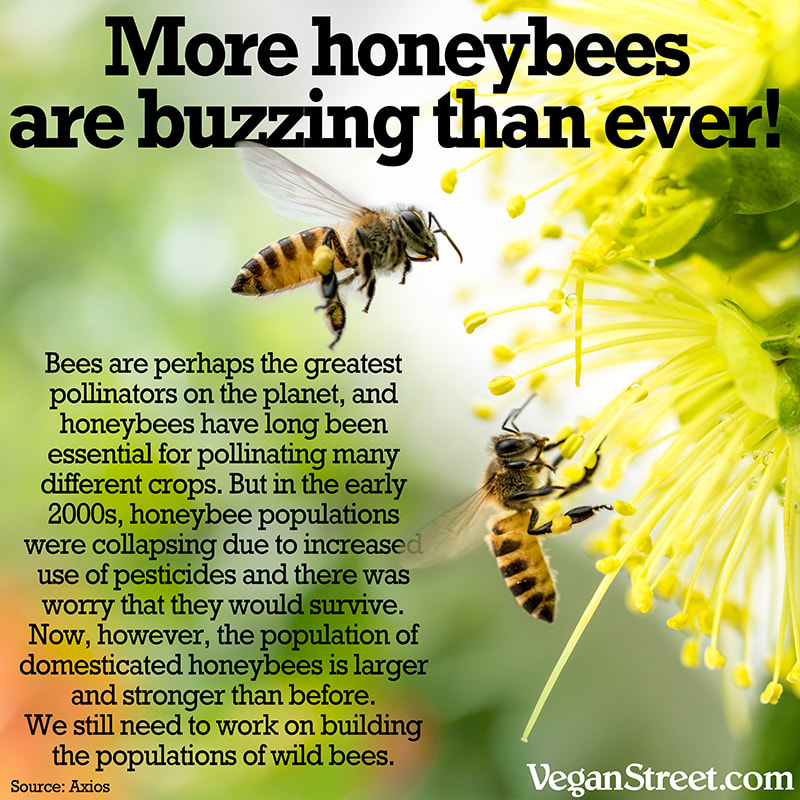Bees are very important pollinators. Along with bats, hummingbirds, butterflies and other insects, they pollinate somewhere between 75% and 95% of all the flowering plants on Earth including apples, bananas, blueberries, strawberries, melon, peaches, potatoes, vanilla, almonds, coffee, chocolate and more than 1,200 other crops.
All of these pollinators are still under serious threat thanks to ever increasing use of pesticides, chemical fertilizers and genetically modified corn, soybean and cotton plants. But since bees are our most significant pollinators, it is critical that they thrive.
We do need to point out here that most honeybees are domesticated, which is a euphemism for an animal whose life is strictly controlled by humans. In the US and I'm sure elsewhere, honeybees are considered livestock that serve two commercial functions: to provide honey for human consumption and to be rented out to serve as pollinators for fruit, vegetable and nut growers. They are certainly not abused on the level of cows, pigs or chickens, but they are not free or unbothered as they would be in the wild. We at Vegan Street are torn about the commercial use of honeybees. On the one hand, they are at least somewhat of a captive species, but on the other hand, they are vital in the production of some of the most important foods in the typical vegan diet.
One note: for those of us (perhaps you) creating pollinator gardens, it is important to work to attract bees other than honeybees. Last year, we saw several different species of wild bees in our garden, none of which were honeybees.
Our source for the meme is Axios
We also used statistics from pollinator.org, which is also a good place to learn how to start your own pollinator garden.
All of these pollinators are still under serious threat thanks to ever increasing use of pesticides, chemical fertilizers and genetically modified corn, soybean and cotton plants. But since bees are our most significant pollinators, it is critical that they thrive.
We do need to point out here that most honeybees are domesticated, which is a euphemism for an animal whose life is strictly controlled by humans. In the US and I'm sure elsewhere, honeybees are considered livestock that serve two commercial functions: to provide honey for human consumption and to be rented out to serve as pollinators for fruit, vegetable and nut growers. They are certainly not abused on the level of cows, pigs or chickens, but they are not free or unbothered as they would be in the wild. We at Vegan Street are torn about the commercial use of honeybees. On the one hand, they are at least somewhat of a captive species, but on the other hand, they are vital in the production of some of the most important foods in the typical vegan diet.
One note: for those of us (perhaps you) creating pollinator gardens, it is important to work to attract bees other than honeybees. Last year, we saw several different species of wild bees in our garden, none of which were honeybees.
Our source for the meme is Axios
We also used statistics from pollinator.org, which is also a good place to learn how to start your own pollinator garden.
Meme, Bees, Honeybees, Pollination, Pollinators, Resurgence, Good News
